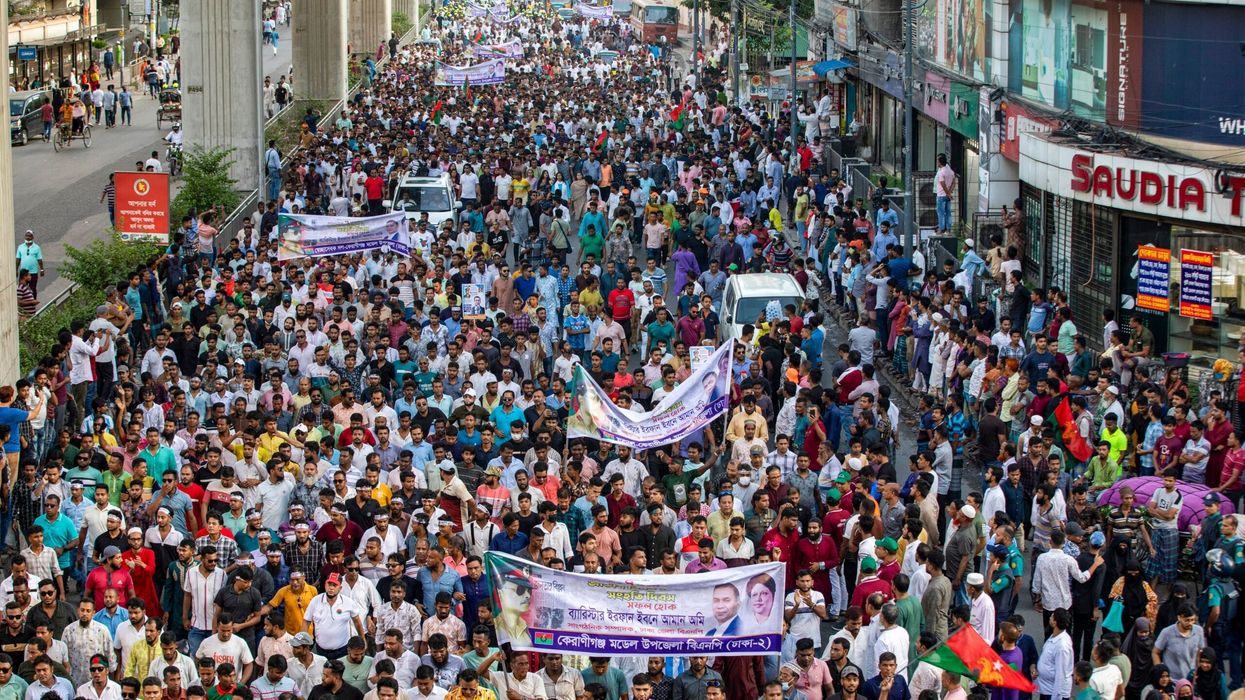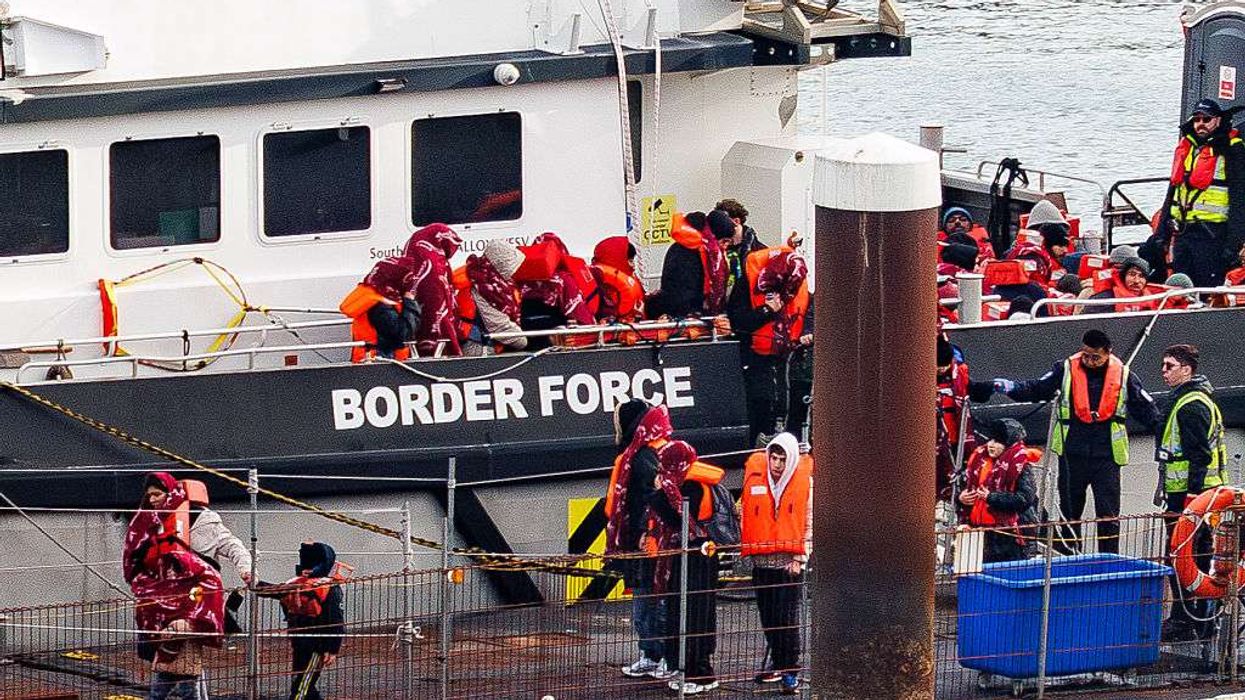SEVERAL supporters of Bangladesh’s ousted former leader were arrested after following her orders to protest bearing placards of Donald Trump, police said last Sunday (10), accusing them of trying to undermine relations with Washington.
Former prime minister Sheikh Hasina, 77, fled by helicopter to India on August 5, after weeks of deadly student-led protests that brought an end to her tenure.
Since then a caretaker government, led by Nobel Peace Prize winner Muhammad Yunus, has been tasked with implementing democratic reforms and holding elections.
Police arrested 10 protesters they described as “conspirators” last Saturday (9) and accused them of attempting to destabilise the country of around 170 million people.
“We are assessing their crimes in order to file charges,” Dhaka Metropolitan Police spokesman, Muhammad Talebur Rahman, said.
The tiny protest came ahead of a proposed rally by Hasina’s Awami League, but the gathering was barred by the interim government which calls the group “fascist”.
Only a few pro-Hasina supporters took to the streets last Sunday, while some small scuffles broke out with student counter-protesters.
Dozens of Hasina’s allies were arrested after her regime collapsed. They were accused of culpability in a police crackdown that killed more than 700 people during the unrest that deposed her, while other party loyalists went into hiding.
Police said that an audio recording of Hasina circulating on social media had urged her supporters to protest last Sunday, and to carry placards with Trump’s photograph and US flags.
“She asked them to use the placards as shields and to take photos and video footage if there were any attacks,” police said. “They had been plotting a conspiracy to undermine Bangladesh’s friendly relationship with the US.”
Hasina’s party had accused – without evidence – the government of US president Joe Biden of encouraging the protest against her iron-fisted rule, claims that the White House called “simply false”. Her 15-year-long regime was marred by incidents of preventing the opposition from exercising their democratic rights.
Yunus, an 84-year-old microfinance pioneer who took over after Hasina was ousted, said he looked “forward to working together” after Trump’s election win.
Police said the Awami League had not sought permission to hold a rally, while the press secretary to Yunus said Hasina’s party was not allowed to march.
“The Awami League, in its current form, is a fascist party,” Shafiqul Alam wrote in a statement. “Anyone who attempts to hold rallies, gatherings, or processions under orders from the mass murderer and dictator Sheikh Hasina will face the full force of the law-enforcement agencies.” (AFP)












